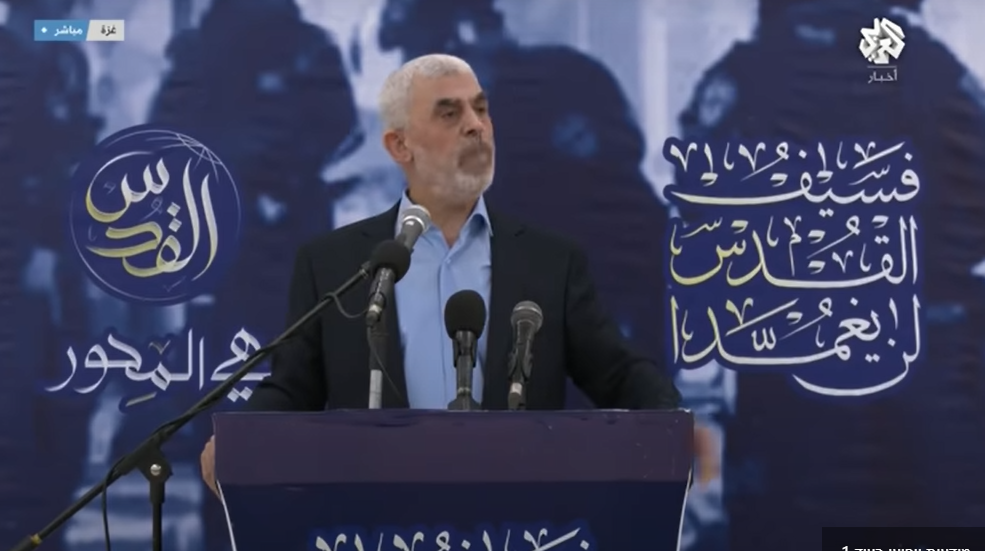Prominent Fatah officials project that the normalization process between Israel and Saudi Arabia, though not yet formally ratified, will gradually shift the balance of power in Judea and Samaria.
This shift is expected to strengthen the PA while weakening Hamas.
Hamas had gained considerable traction in Judea and Samaria after the “Guardian of the Walls” operation in May 2021, positioning itself as a defender of the Al-Aqsa Mosque in the eyes of Palestinian public opinion.
Following this success, Hamas adopted a policy of relative calm in Gaza, arguing that Gaza had borne the brunt of the struggle against Israel in recent years, and it was now the West Bank’s turn.
The group focused on improving the economic and humanitarian situation in Gaza, facilitating the entry of laborers into Israel, and relied on Egypt and Qatar as intermediaries in its relations with Israel.
In May 2023, during Israel’s military operation against Islamic Jihad in the Gaza Strip (Operation “Shield and Arrow”), Hamas remained largely passive, choosing not to intervene in the fighting.
However, over the past three weeks, Hamas has sensed signs of diminishing regional influence, prompting a resurgence of violent activities along the Israeli border.
These actions, carried out under the familiar banner of defending the Al-Aqsa Mosque and supporting security prisoners, have included border demonstrations, shooting incidents, explosive device and Molotov cocktail attacks, the launching of incendiary balloons into Israeli territory, and nighttime terrorist activities—a dramatic show of strength.
The spotlight of Palestinian and international attention has shifted to northern Samaria due to the activities of armed groups such as Islamic Jihad and the “Al-Aqsa Martyrs Brigades,” the military wing of Fatah.
Hamas is now signaling to regional powers like Israel, Egypt, and Qatar that it remains the dominant force in Gaza and Judea and Samaria, unwilling to concede ground on the Palestinian stage.
To bolster its position, Hamas is seeking additional economic incentives, including an increase in the monthly Qatari grant to Gaza and a higher quota of Gazan workers permitted to work in Israel—currently standing at 18,500.
Nevertheless, Hamas is facing a loss of its previous strong regional standing and is finding its relationships with Turkey and Qatar strained.
These strains result from Hamas’s efforts to reconcile with Bashar Assad’s regime and Qatar’s reluctance to increase the financial grant to Gaza.
Furthermore, Hamas’s ties with Turkey have been strained due to Turkey’s warming relations with Saudi Arabia, Egypt, and the United Arab Emirates, as well as its renewed normalization of relations with Israel.
In Judea and Samaria, Hamas is gradually losing its prominence in the eyes of the Palestinian populace.
Credit for recent acts of terrorism is increasingly being attributed to groups in Jenin, Nablus, and Tulkarm, which are aligned with Islamic Jihad and the Fatah movement.
As a response, Hamas may attempt to reclaim its regional standing by initiating a new round of hostilities with Israel in the Gaza Strip, thereby signaling its significance as a regional actor capable of disrupting processes in which it is not a participant.
Recently, Israel reopened the Erez crossing for Gazan workers to enter Israel as a goodwill gesture aimed at deescalating tensions along the border.
However, during the upcoming Sukkot holiday, Hamas may once again lead an escalation, coinciding with increased visits by Jews to the Temple Mount, potentially culminating in rocket attacks on Israel.
Only time will reveal the extent of these developments.




